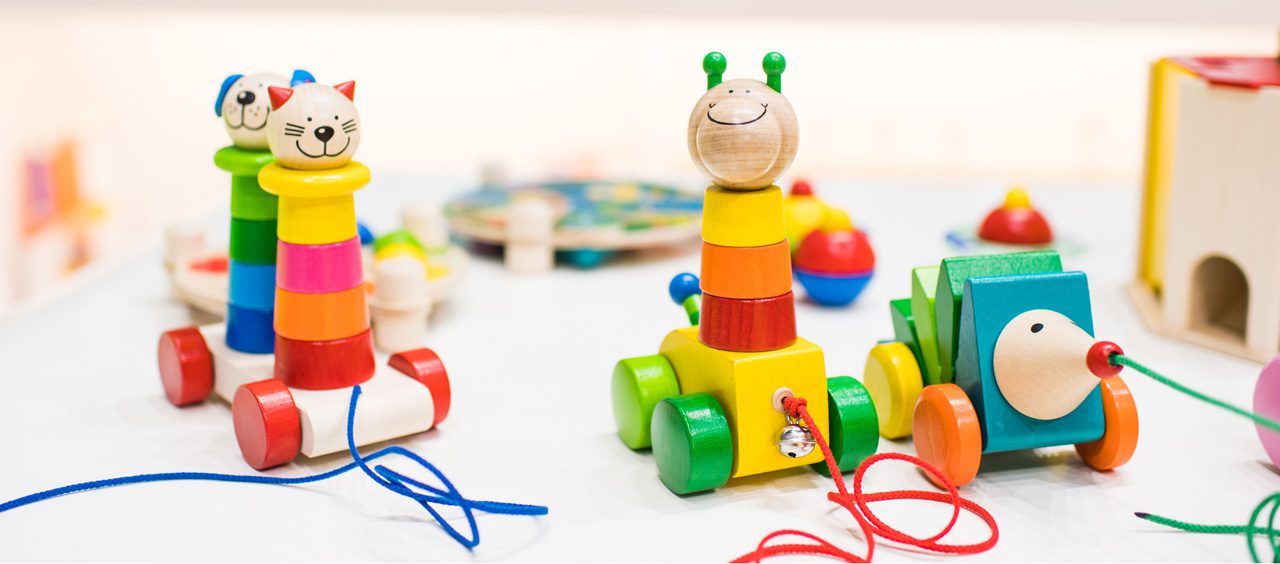You're probably wondering how this could be possible. How could the screens that are all around us, from our phones to our TVs, have any effect on our children? Well it's important to understand the difference between two different types of screen timer kids are exposed to. Passive and interactive screen time. Passive screen time means being exposed to webpages, ads or other visuals are being passively consumed by you. Whereas with interactive screen time, children are using touchscreens or playing video games where they can control what is happening on their screens. It's important to understand these two distinctions in order to be able to gauge how much exposure your child has had with screens.
It's no secret that kids are spending more and more time with screens these days. From tablets, to TVs and even video games, there isn't a minute where you don't see kids' eyes glued to the screen of their favorite device. But we need to start asking ourselves how much is too much? What is happening to our children when they spend too much time staring at screens? What are the effects of screen time on their development and what should we be concerned about?
Is screen time bad for kids?
A study done by San Diego State University and the American Academy of Child & Adolescent Psychiatry assessed that children who spent an average of 3 days a week in front of a screen increased their risk in becoming overweight by 27%. These results remained consistent in all age groups, but it's especially true for children under 8 years of age.
Another study done in the United Kingdom followed 1470 kids between the ages of 7-11 for 5 years to assess how much time should be considered “too much” screen time for this age group. It found that there was no safe limit when it came to screen time and that children who had more than 2 hours of exposure a day were more likely to be obese and struggle with emotional problems, hyperactivity and peer difficulties.
It's important to keep in mind that there is no universal number for how much screen time should be allowed per day as each child has different needs and will feel the consequences of too much screen time differently.
Is too much screen time bad for the brain?
Now that we know how much screen time is bad for children, let's take a look at what screen time does to our brains. One study found that just 30 minutes of exposure to TV every day affects kids' academic performance by slowing down their reading speed and comprehension skills. This is hugely problematic as this is a time where children should be learning and gaining new knowledge that they can use throughout their lives. In fact, another study published in the Proceedings of the National Academy of Sciences found that each hour kids spent watching TV during preschool led to lower math achievement at school.
The problem with screens goes beyond just affecting academic performance. They have been linked to attention disorders, increased obesity rates and even sleep problems. In fact, researchers from the University of Oxford found that children who spend more than 2 hours a day watching TV or playing with their tablets were twice as likely to have sleep problems compared to those who spent less than two hours a day in front of screens.
Does screen time affect our kids' behavior?
Not only does screen time affect academic and cognitive skills, it also affects behavior. Research shows that children who spend more than 2 hours a day watching TV or playing with tablets were found to be at greater risk of developing behavioral problems including ADHD and autism.
The reason why is because screens can influence how we behave later on in life as research by Dr. Victoria Rideout, a researcher at the Kaiser Family Foundation who led a study on children and media, found that what kids see on TV can affect them later in life as they are four times more likely to become obese if they watched fast food commercials between ages 8-11. She went on to say that “If you are young enough it can make a big impact on how you behave”
In addition to this, Dr. Dimitri Christakis, a pediatrician at Seattle Children's Hospital and director of the Center for Child Health, Behavior and Development also found that what kids watch can affect their behavior as after reviewing more than 1,400 studies done on the connection between television and child behavior, Christakis found that “there is a growing body of literature showing that the medium—television, in particular—is having negative effects on young children.”
How much screen time should kids have?
Even though there isn't an ideal amount of screen time for kids to have since it varies from child to child, here are some helpful tips you can use to limit screen time in your household:
- Limit the amount of television your kids watch to 1 hour a day. If this is not possible then use parental control settings that limit the amount of TV or screen time.
- Don't allow more than 1 hour of recreational computer/Internet use on school nights and 2 hours on weekends and school breaks.
- Keep all screens out of kids bedrooms and stick to the same rules as above.
- Make sure your child has an hour of active play a day such as playing outside, riding their bike or climbing on playground equipment.
- If you must do screen time with your child then make sure it is educational such as reading together or helping them with their homework.
- If your child is unruly or irritable after screen time, take it away for the rest of the day.
- It's also important to recognize that if you are on your phone or computer when with your kids, they will model the behavior they see you exhibiting. So make sure to turn off all screens when you are with your kids!
- Ensure that all screens possess parental controls, which enable parents to limit the type of content their children can access.
- Limit the overall amount of time spent on recreational computer use. The more hours a child spends engaging in sedentary activities such as watching TV or playing games will increase their risk for obesity and decrease their ability to concentrate throughout the day.
Modern screen time is more advanced than ever before, with new devices able to connect wirelessly at speeds that mesmerize our children. Because of this technology, it can be hard for parents to regulate their kids' daily screen time habits. This might be why some research has found that around 85% of college students own smartphones, and that they use them for approximately five hours a day. As more research is conducted on the effects of media exposure on young children, it becomes more apparent that parents must put in effort to minimize their child's screen time.
How can I help my child with alternatives?
Parents can always play with their kids outside or engage in activities that get them moving, such as playing tag or hide and seek instead of just staying inside. It's also important to recognize that if you are on your phone or computer when with your kids, they will model the behavior they see you exhibiting. So make sure to turn off all screens when you are with your kids!
The sooner we take these steps to educate ourselves about the effects of screen time on young children, the sooner we can take action that might impact many generations to come.
How can you instead boost your child's IQ?
Besides genetics, there are some more factors that affect your child's intelligence. Good nutrition, protection from toxins and plenty of playtime and exercise are all important.
According to the latest research, exercise boosts brain power in many ways:
It increases blood flow to the brain. It makes you smarter by stimulating neural connections. It helps release feel-good chemicals that enhance mood and relaxation and it can even make you more focused and better at learning.
Besides exercise, there are plenty of activities you can do with your child that will boost their brain power, such as:
- Learning a new skill or language together – this stimulates the part of the brain responsible for memory and logical thinking
- Doing puzzles – this challenges spatial awareness and improves reasoning skills
- Playing games – these stimulate areas of the brain associated with logic and maths
- Having book time every day – this expands the imagination and allows children to find solutions to problems by putting themselves in someone else's shoes
- Creating experiences – find opportunities for your child to explore and learn different things in the world around them
- Nurturing natural interests – find out what your child is passionate about and spend time talking to them about it
- Give them the right food – eat plenty of vegetables and fruits every day, as well as foods rich in omega-3 such as salmon and tuna
- Reduce your child's exposure to toxins – use natural cleaning products, buy organic produce and cook with fresh ingredients instead of processed canned ones.
- Reduce the number of chemicals around the home that might affect them by checking all labels for toxic substances.
- Most importantly, make sure your child gets enough sleep – this ensures their brain has time to recover from the day's activities and will increase their ability to learn. More intelligent children are more likely to stay up later than other children, so make sure they get enough rest every night!
The sooner we take these steps to educate ourselves about the effects of screen time on young children, the sooner we can take action that might impact many generations to come. We hope you found this article helpful in understanding how important it is for kids to get enough sleep and exercise every day if they want their brain power to grow! If your child needs more help managing their screen time or just wants some fun ideas for things they can do instead, make sure to reach our article about alternatives for screen time.
Please feel free to comment and we would love to hear your feedback!







































